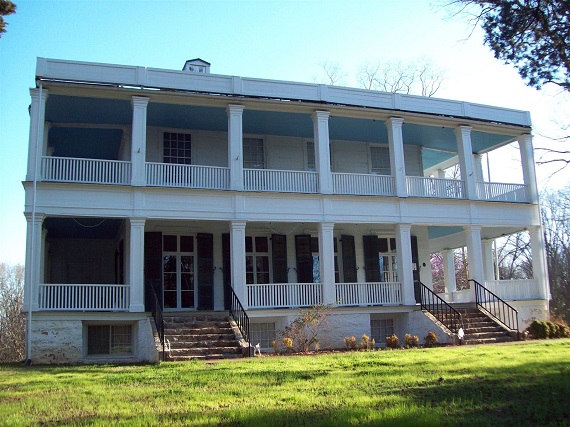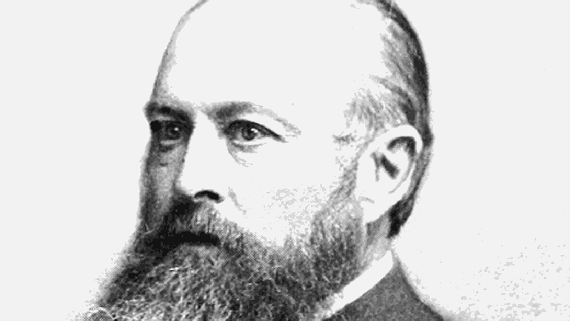Maria Henrietta Pinckney (1782-1836) of South Carolina was the daughter of General Charles Cotesworth Pinckney, an officer in the Continental Army and a delegate to the 1787 Constitutional Convention. Maria lost her mother at an early age and was educated at home by her famous grandmother, Eliza Lucas Pinckney. In 1830, during the nullification controversy, Miss Pinckney published a widely circulated pamphlet entitled The Quintessence of Long Speeches, Arranged as a Political Catechism. In it she defended state rights and nullification, and argued against the views of Daniel Webster (1782-1852), a nationalistic Whig leader who contended that the Constitution was created by “the whole people” rather than the citizens of the sovereign states. Thomas DiLorenzo described Webster’s view of the creation of the U.S. Constitution as “pure fabrication, invented out of thin air,” and noted that it was “repeated by Lincoln decades later to rationalize waging war on the South and the destruction of the federal system of government created by the founders.” The following are excerpts from Miss Pinckney’s Catechism.
Question—What do we understand by the Federal Union?
Answer—It is an agreement between Sovereign States, to forbear exerting their sovereign power over certain objects, and to exert jointly their sovereign power over other specified objects, through the agency of a General Government. Each State agrees to exert its full sovereign power jointly, for all external purposes; and separately, for all internal purposes, or State concerns.
Q. Where is this Agreement found?
A. It in the bond of Union, or compact between the States, called the Federal Constitution.
Q. What is the nature of the Federal Constitution?
A. It is a compact based upon cautious and jealous specifications. The distinguished body of men who framed it, guarded and defined every power that was to be exercised through the agency of the General Government—and every other power not enumerated in the compact, was to be reserved and exercised by the States.
Q. Did the States, on forming the Constitution, divest themselves of any part of their Sovereignty?
A. Of not a particle. The individuality and sovereign personality of the States was not at all impaired. The States agreed, by the Constitution, that they would unite in exerting their powers, therein specified and defined, for the purpose and objects therein designated, and through the machinery therein created; but the power exercised by the functionaries of the General Government, is not inherent in them, but the States whose agents they are. The Constitution is their Power of Attorney, to do certain acts; and contains, connected with their authority to act, their letter of instruction, as to the manner in which they shall act. They are the Servants. The power which gives validity to their acts is in their MASTER—THE STATES.
Q. How do you define Rebellion?
A. It is the resistance of an inferior to the lawful authority of a superior. A child may rebel against a parent—a slave against his master—citizens against the government, and colonies against their mother-country—but a State cannot rebel; because one Sovereign cannot rebel against another, for all Sovereigns are equal. The Sovereignty of the little State of Delaware is equal to that of New York, or of Russia, though the physical power of those Sovereignties are vastly different. The supposition, therefore, that a Sovereign State can commit Rebellion, Treason, or any crime whatever, is utterly inadmissible in the science of politics. The idea of crime cannot exist where there is no conceivable or possible tribunal, before which the culprit could be arraigned and convicted. Still less can any State be supposed to incur the guilt of rebellion or treason, by resisting an unconstitutional law of the General Government. The General Government is the creature of the States—the offspring of their Sovereign Power. It the Creator to be governed by the lawless authority of the Creature?
Q. What is the meaning of nullification?
A. It is the veto of a Sovereign State on an unconstitutional law of Congress.
Q. What is the new version of the Constitution by Messrs. Webster & Co.?
A. They have discovered that the Constitution was not formed by the States in their Sovereign capacity—that it is not a compact between the States—but that it is a Government formed by the people, en masse, that is, by the people collected into one nation—that this nation brought the Government into existence—established it, and hath hitherto supported it for the very purpose, among others, of imposing certain salutary constraints on State Sovereignties. That in forming this National Government, the people conferred upon the Supreme Court, the power of imposing these certain salutary restraints upon the Sovereignties of the States.
Q. To what do these doctrines lead?
A. To the annihilation of State Rights, and consequently, of the fundamental principles of Constitutional Liberty, for which our Fathers fought and conquered.
Q. Upon what does the Supreme Court and Messrs. Webster & Co. found their discovery?
A. Upon the preamble to the Constitution—it is in these words: “We the people of the United States, to form a more perfect Union,” etc. To people of common understanding, black means black, and white really white; but to Messrs. Webster & Co. it means just the reverse. “We the people of the United States” mean according to them—“We the people not of the United States, but the people collectively.”
Q. Why have the States allowed the Constitution, the sacred legacy of the combined wisdom of their fathers, to be violated by sacrilegious hands?
A. Because that self-interest is the governing principle of ¾ of mankind. The North, East, and West acquiesced in the usurpation of the General Government, because it was for their exclusive benefit, while the South was passive through apathy and sleep. The North and East bribed the West by internal improvement, and by donations of public lands—and the West in her turn, bribed the North and East with the Tariff. Internal improvement and a Tariff of protection, are twin born abominations unknown to the Constitution. The South, whose vital interests and almost her existence depended on the inviolability of the Constitution, scarcely awakened from her dream of sovereignty, finds herself the vassal province of a Consolidated Central Government, without limitation to its power, but the will of the majority to legislate for the general welfare…The usurped power…leaves the minority to ruin and degradation. This minority is the South.







